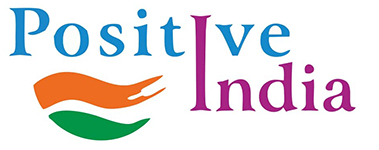
Positive India:Dr.Pradeep Sharma(NHMMI):
Sepsis, commonly referred to as “blood poisoning,” is a potentially fatal complication that can result from any infection, including bacterial, fungal, viral, and parasitic diseases. It is a dangerous side effect of the body’s reaction to infection that can result in organ damage or even death. Despite its seriousness, sepsis is still largely unknown, which results in delayed diagnoses and higher mortality rates. We must increase public awareness of this silent murderer since information is our best defense.

A Global Health Priority:
Sepsis is one of the leading causes of death in several regions of the world. Sepsis is a sickness that results from an infection that spreads to several organs. Sepsis is diagnosed in one in six hospital patients, prompting the World Health Organization (WHO) to designate it as a global health priority in 2017. Every year on September 13th, World Sepsis Day is held to raise awareness of this important topic.

The Deadly Escalation: Sepsis to Septic Shock
Sepsis may develop into septic shock, an unsafe condition when blood pressure falls to dangerously low levels and frequently results in death without aggressive intensive care treatment (ICU), if it is not swiftly controlled. The key to sepsis survival depends on obtaining antimicrobial medicines (usually known as antibiotics) early on and in seeking medical attention at the appropriate time. According to studies, every hour that antibiotic therapy is postponed leads in a shocking 6% rise in mortality. Delaying medical care can also lead to severe sepsis, which has a high fatality rate and expensive medical costs.
High-Risk Groups:
Even for those who recover from sepsis, the struggle continues. Survivors frequently experience extended hospital admissions as well as physical, mental, and cognitive impairment. Sepsis is more likely to strike certain populations, such as cancer patients undergoing chemotherapy and organ transplant recipients. These people must exercise extra caution when preventing infections.
Prevention: The Best Defense:
When it comes to sepsis, the proverb “prevention is better than cure” is especially true. The best method to combat sepsis is to stop infections before they start. Simple precautions can make a big difference in lowering the risk, such as wearing masks in public areas, avoiding close contact with infected people, caring for wounds properly, and thoroughly washing your hands with soap.
In conclusion, sepsis is a strong foe yet it is not unbeatable. The secret to prevention is timely and appropriate treatment. In the fight against sepsis, prompt medical care, prompt antibiotic administration, and prompt treatment are essential. Sepsis can be prevented by raising awareness of it, which will help us save lives.
Written by :
Dr. Pradeep Sharma-
Senior consultant and head
Department of critical care medicine
NH MMI Superspeciality hospital, Raipur
On the occasion of Indian society of critical care medicine (ISCCM ) foundation day for public awareness on the theme of prevent , treat and defeat sepsis .




